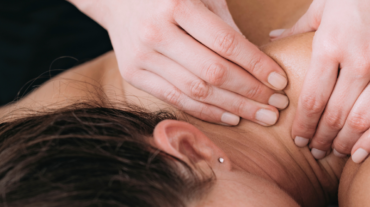Neck and Shoulder Pain - Levator Scapulae Syndrome
It’s sometimes hard to come up with a good title that will catch people’s attention, because frankly some things just require a lot of information. What is levator scapulae syndrome (LSS) and why would anyone be interested in it? Well, the truth is that it’s something many of us suffer from because the causes are so prevalent:
- Stress, anxiety, even depression
- Daily postural complications, eg from using cell phones, tablets and computers
- Carrying bags and purses on one shoulder
- Sports
- Cervical spine issues
So how to define this issue in one simple title? That was the challenge, because most of us suffer from some kind of levator scapulae issue or another, even if it’s not causing us any real concern. If you do the right things regarding your posture, including getting frequent chiropractic, physiotherapy, massage, acupuncture, etc., then you’re probably not suffering as much as some. And we may have LSS issues without even knowing it, because these are some of the signs and symptoms:
- Neck and shoulder pain
- Headaches
- Reduced range of movement in the neck and shoulders
- Difficulty sleeping (due to the pain)
And so of course LSS crosses over into other issues, so you may have LSS without it being defined as such - you’ve just been conditioned to call it something else, eg “tension headaches.” Luckily, this is irrelevant for the most part, because a well-trained and experienced chiropractor, physiotherapist, massage therapist, acupuncturist (and so on) will just need you to tell us where and how it hurts. With this information we can release the right muscles and give you the right exercises and voila, the symptoms and the syndrome will lessen. Disappear? One hopes, of course, and with extensive focus on the issue this is more likely, but the common scenario is that we get things working to a better point than you were previously used to, and this seems like enough of a miracle.(and is for the most part).
So do your best to fight the need for a single “diagnosis” of your neck pain (or shoulder pain or headaches), and do see someone about it, because you don’t have to suffer it and you don’t have to just mask it with medication. You can actually get it treated, and you can learn the right exercises and lifestyle changes so that you don’t need to have extensive work on it for your whole life.
The following is only a start, of course, but this is how you can stretch your levator scapulae muscle (I do advise you, however, to learn this first from a professional, and only then try it on your own using these instructions as a guide):
Sitting or standing, turn your face towards one of your armpits. Then, as though you were trying to sniff your armpit, use the hand of that same side to pull your face towards it. The other arm can hang at your side, go behind your back, or if you’re sitting, can grip the side of the chair. When stretched, switch and do the other side.









